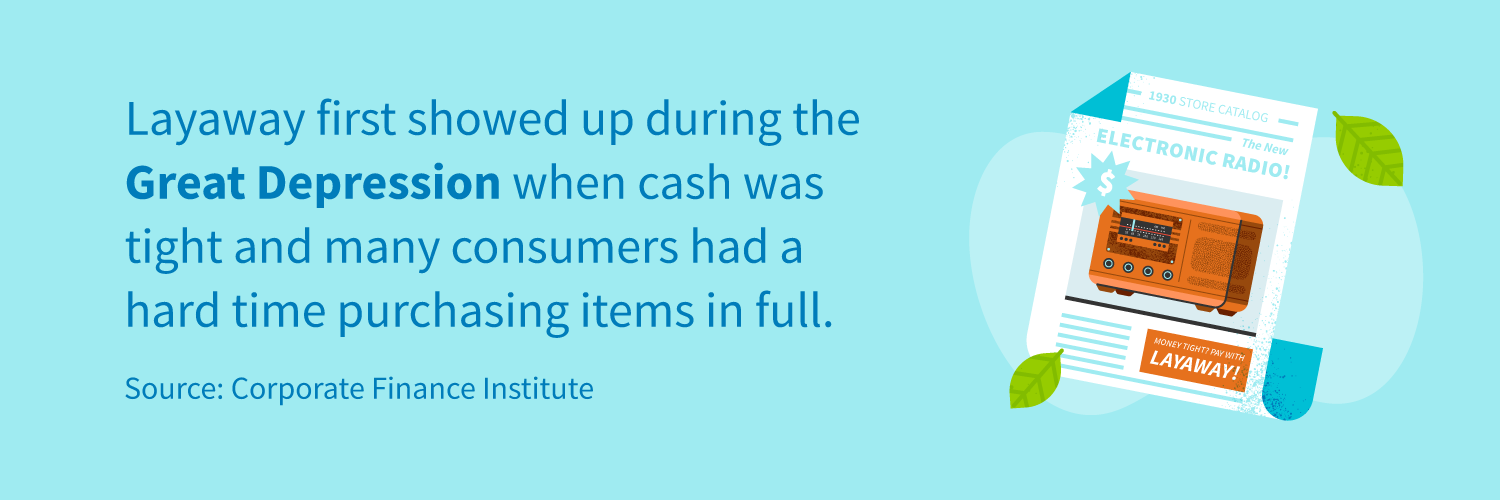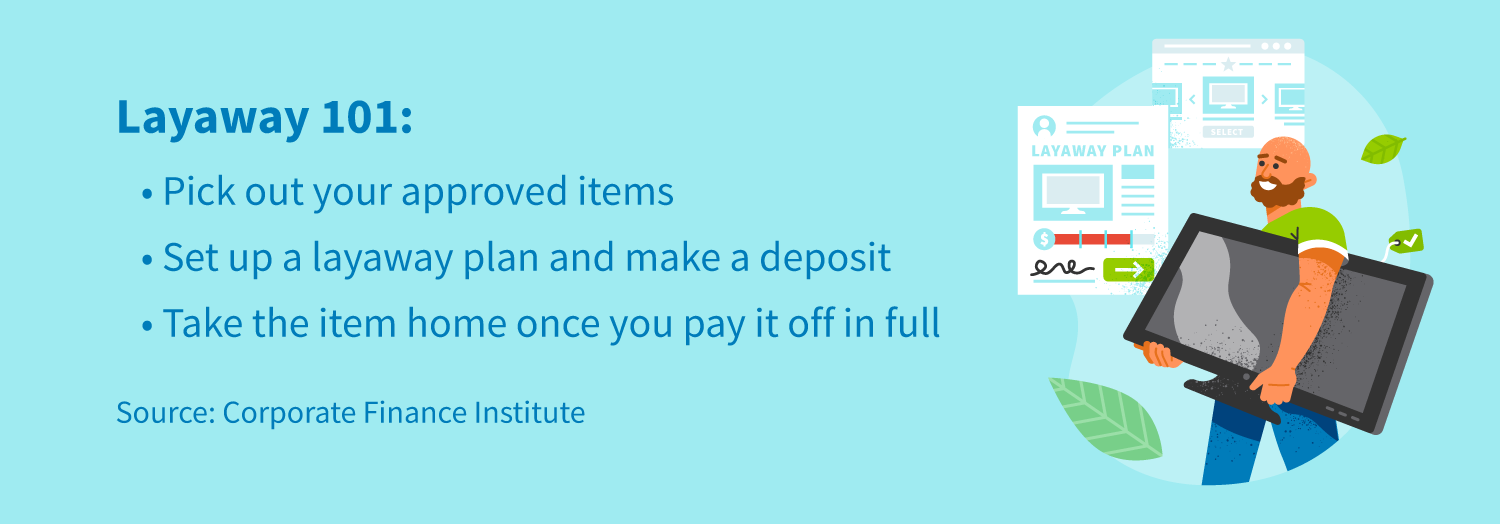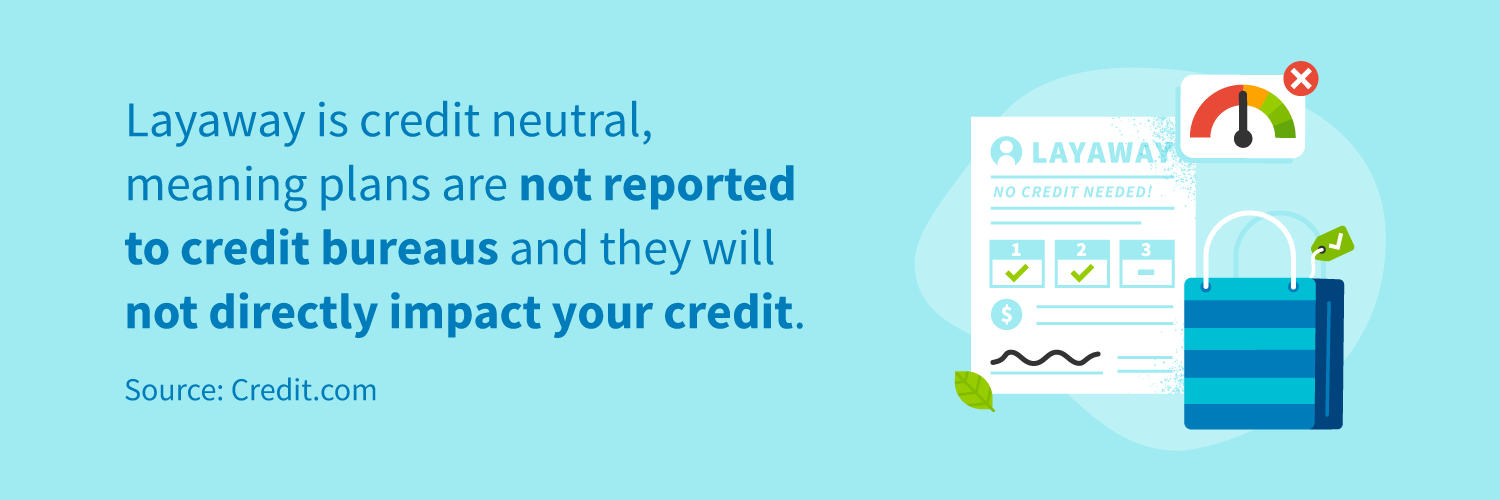
Disclosure regarding our editorial content standards.
The holiday season warrants big spending when it comes to gift giving, and many people can end up in debt. This draws many consumers to layaway plans offered by retailers. Layaway plans allow you to purchase an item from a store and pay it off over time. It’s an option for purchasing higher-ticket items when you don’t have a lot of disposable income or don’t want to rack up credit card debt.
According to the Corporate Finance Institute, layaway was first introduced during the Great Depression, when cash was tight and many consumers were unable to make full purchases. It allowed people to pay off items in installments and then pick them up when payments were made in full.
When credit cards showed up in the 1980s, layaway plans dwindled in popularity. However, the financial crisis of 2008 sparked a new wave of layaway plans, and in the years after, retailers began to revive their once-dormant layaway programs. Stores like Walmart, Sears and K-Mart are some of the most popular to offer layaway; in recent years, online retailers have also started offering layaway plans, expanding options.

How Does Layaway Work?
In terms of qualifying for layaway, there are few to no requirements: you can sign up with only your ID and a deposit of some sort (typically a percentage of the price of the item or a flat rate set by the store). You are not required to show your credit score or allow the retailer to conduct a hard inquiry, which is why layaway is a popular option for those with credit problems, a low score or little credit history.
While the specifics of layaway plans vary from store to store, the basics of the practice are pretty much the same across the board.
- Customers are able to put certain items on layaway as decided by the store—these are typically big-ticket items, like electronics.
- A down payment of some sort is required by the customer. This may be a percentage of the total price, a certain baseline amount or an amount that’s decided case by case.
- Terms are established for payments. Most retailers will have guidelines already set up for this—based on the items and their prices, plus the store’s policies—and payments can range from weekly to monthly until the item is paid off.
- After all the payments have been made, the customer is able to pick up the items from the retailer.
If the customer doesn’t pay the full amount, the item will likely go back on the shelf and the customer’s money will be returned. The parameters of this can vary, as some retailers require a storage fee or other layaway fees, which may not be returned if the item isn’t fully paid for. Remember to always read the fine print before entering into a layaway plan, as these things are typically outlined.

Pros and Cons
Even though the specifics of layaway plans vary from store to store, the basics stay the same, and this is true for the benefits and drawbacks as well.
Pros
- A credit check isn’t required, so it’s good for those with little to no history, a low score or past credit issues.
- Retailers often craft layaway plans based on your finances and the items, so you can come up with a plan that works for you.
- There’s no interest—you only pay for the cost of the item and a flat-rate storage or service fee for the retailer.
- Many online retailers have begun offering layaway programs, giving consumers more opportunities for purchasing items.
Cons
- Layaway plans typically have pretty stringent payment rules. If you miss a payment, you risk losing your reserved item.
- The down payment and fees can often sneak up on you, so you need to fully understand the retailer’s guidelines before moving forward with a layaway plan.
- They’re not always available for every item—you’re typically only allowed to layaway items from a certain list of products.

Does Layaway Affect Credit?
Since layaway isn’t tied to a credit card, it’s not reported to the credit bureaus and thus doesn’t impact your credit. This can be good if your score is low and you’re not looking to compromise your credit health. Plus, a missed or late payment won’t impact your credit; it will just impact your potential ownership of the item.
On the other hand, it can hold you back if you’re looking to build credit. While it may be an easy way to pay for items, especially if you know you can handle all payments, it could be a missed opportunity to boost your credit.
For example, if you purchase an item with your credit card and pay it off in full instead of opting for a layaway plan, that reflects well on your credit health and should only help boost your score. In short, though layaway plans don’t directly impact credit, weigh your options to decide if it’s the best route for you and your credit health.
Worried about holiday shopping or how to avoid hefty credit card payments? Don’t stress. It’s best to know your credit limits and what you can afford before you start budgeting for the holiday season. If you ever need help getting your credit back on track, our team can help you get it all sorted out.






